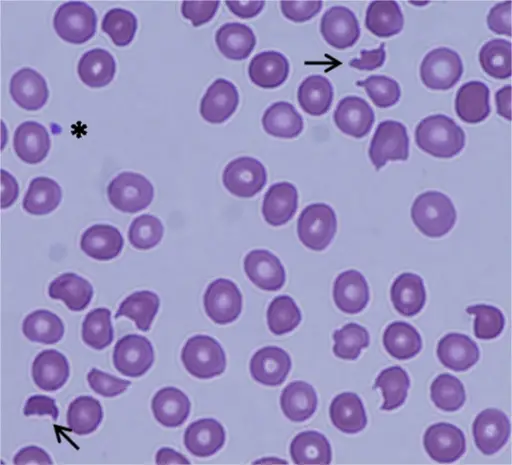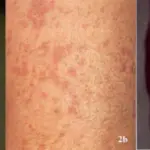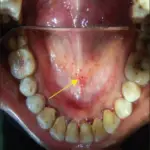Chronic immune thrombocytopenic purpura is syndrome associated platelets coated with autoantibodies to platelet membrane antigens results in splenic sequestration and mononuclear macrophages phagocytosis commonly in adults.
What is the Pathology of Chronic Immune Thrombocytopenic Purpura?
The pathology of chronic immune thrombocytopenic purpura is:
-Etiology: The cause of chronic immune thrombocytopenic purpura is autoimmune factors
-Genes involved: Unknown.
Pathogenesis: The sequence of events that lead to chronic immune thrombocytopenic purpura results from the creation of autoantibodies against IIb-IIIa or Ib-IX platelet membrane glycoproteins. Opsonized platelets are considered vulnerable to phagocytosis by the mononuclear phagocyte system cells.
-Morphology: The morphology associated with chronic immune thrombocytopenic purpura shows megathrombocytes and clumps of platelets.
-Histology: The histology associated with chronic immune thrombocytopenic purpura shows increased megakaryocytes.
How does Chronic Immune Thrombocytopenic Purpura Present?
Patients with chronic immune thrombocytopenic purpura typically have a female-to-male ratio is 3:1. Present at an age range of 40 years. The symptoms, features, and clinical findings associated with chronic immune thrombocytopenic purpura include bleeding in the skin, ecchymoses, bruising, gum bleeding, nose bleeding, soft tissue bleeding, splenomegaly and lymphadenopathy.
How is Chronic Immune Thrombocytopenic Purpura Diagnosed?
Chronic immune thrombocytopenic purpura is diagnosed through laboratory studies- CBC count, peripheral blood smear, bone marrow aspirate shows megakaryocytes number increased. Other tests include bone marrow biopsy, and splenic evaluation.
How is Chronic Immune Thrombocytopenic Purpura Treated?
Chronic immune thrombocytopenic purpura is treated through medical care steroid therapy. Splenectomy may be needed.
What is the Prognosis of Chronic Immune Thrombocytopenic Purpura?
The prognosis of chronic immune thrombocytopenic purpura is poor associated with relapse.



